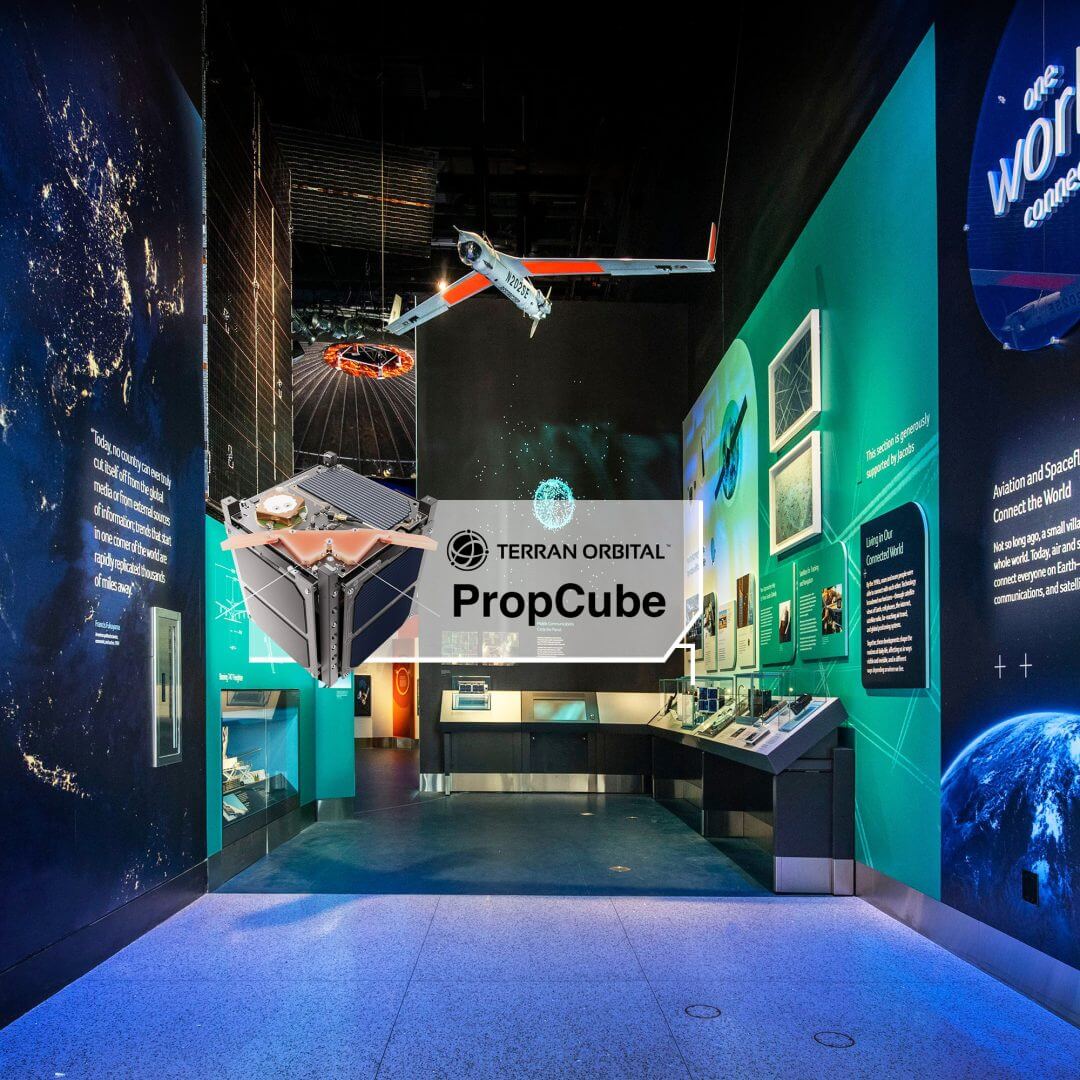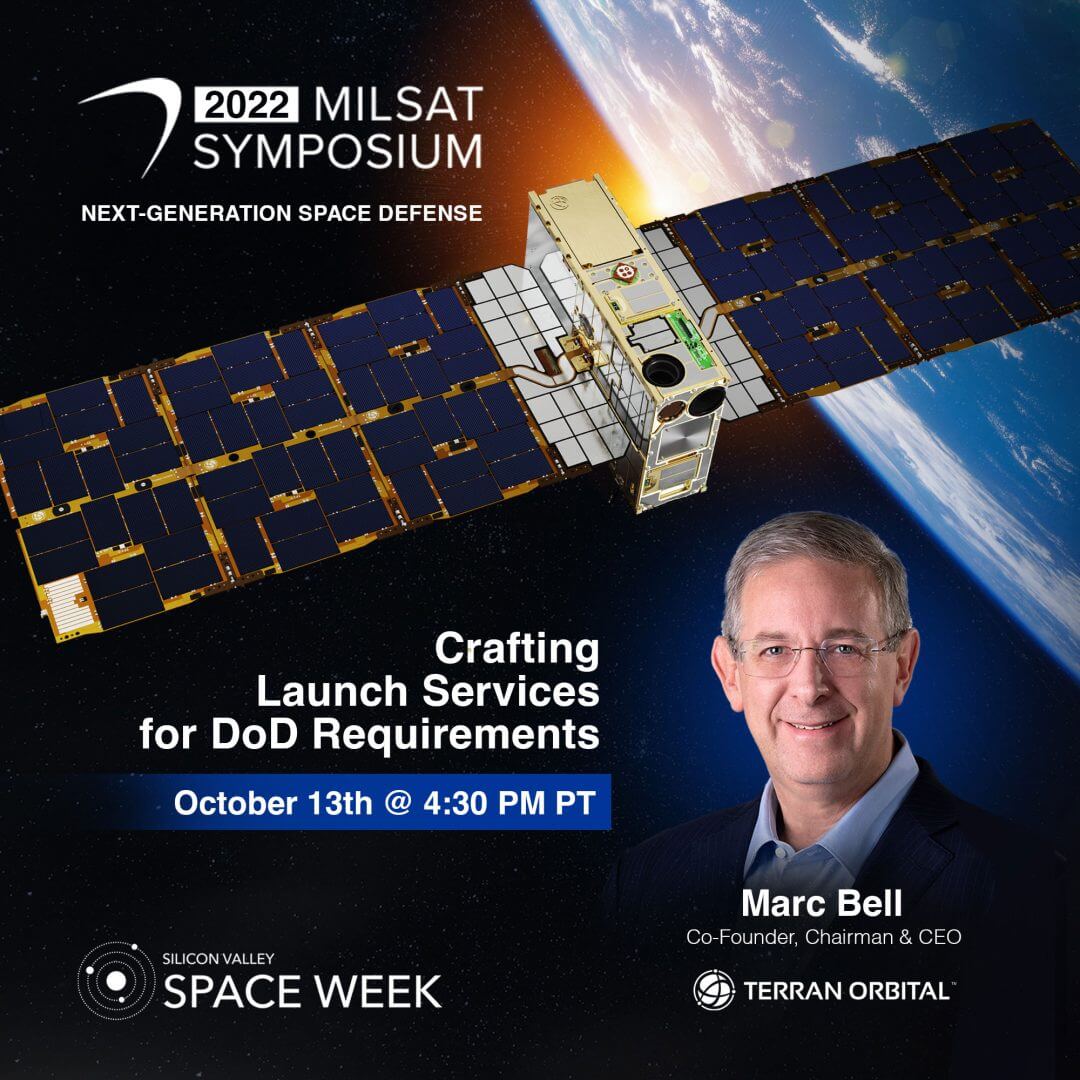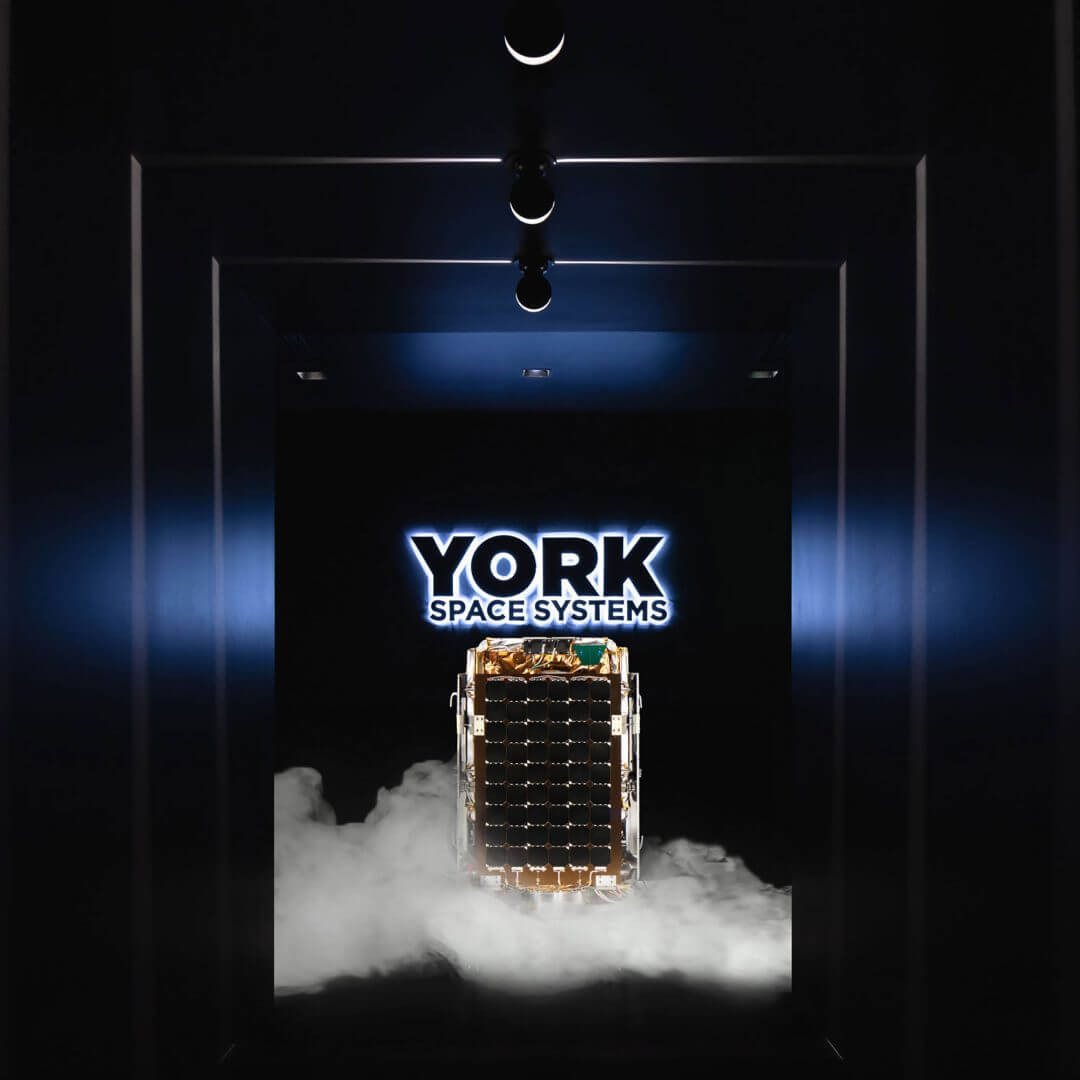Terran Orbital-Developed PropCube Finds New Home at Smithsonian’s National Air and Space Museum

A Terran Orbital-developed PropCube will be on permanent display at the National Air and Space Museum’s One World Connected exhibition starting at 10:00 a.m. ET on Friday, October 14.
Terran Orbital’s Marc Bell to Present at 2022 MilSat Symposium

Terran Orbital Corporation Co-Founder, Chairman, and Chief Executive Officer Marc Bell will present at the 2022 MilSat Symposium. The symposium takes place October 13-14 at the Computer History Museum in Mountain View, Calif. Bell will present on the Crafting Launch Services for DoD Requirements panel on October 13 at 4:30 p.m. ET.
Spacecraft builder York sells stake to private equity firm AEI at over $1 billion valuation

Spacecraft manufacturer York Space Systems is selling a majority stake in the company to private equity firm AE Industrial Partners at an enterprise valuation of $1.125 billion
Terran Orbital to Present at Satellite Innovation 2022

Terran Orbital Co-Founder, Chairman, and Chief Executive Officer Marc Bell and Chief Revenue Officer Marco Villa will present at Satellite Innovation 2022 in Mountain View, Calif. Bell will present on the Growth and Diversity of Constellations panel on October 12 at 11:30 a.m. PT. Villa will present on the Market Analysis and Forecast panel on October 11 at 8:30 a.m. PT. The conference comprises the first part of Silicon Valley Space Week.
Flying High: This Company Is Ready To Launch

Terran Orbital is a leading vertically integrated provider of end-to-end satellite solutions. The company combines satellite design, production, launch planning, mission operations and in-orbit support purpose built for the needs of the most demanding military, civil and commercial customers.
Terran Orbital To Present At Sidoti Small-Cap Virtual Investor Conference

Terran Orbital will participate in the Sidoti Small-Cap Virtual Investor Conference on September 22. Co-Founder, Chairman, and Chief Executive Officer Marc Bell will present alongside Chief Financial Officer Gary Hobart at 12:15 p.m. ET.
